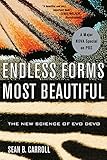Scaling up this approach to study multicellular organisms with longer generation times than yeast will of course take a lot of time and effort. Sometimes (as here) experiments on simple model organisms produce surprising findings. There will be even more surprising findings, I think, as evolution is studied in more detail in multicellular organisms at the molecular genetic level with strict experimental controls of developmental environments.
EDIT TO REPLY TO ANOTHER COMMENT:
Another participant asked,
I feel like a CS education should prepare one for this kind of field. What's a good way to get started learning more about evolution?
It will indeed take a lot of hard work by experienced computer scientists to solve some problems in evolutionary theory. A quite good way to start learning about evolution is to read the book Why Evolution Is True, which talks not only about evidence for evolution but also about implications of the theory. Then read the book's website[1] frequently for the latest news.
Other good things to read are the books by biologist Sean Carroll (not to be confused with physicist Sean Carroll) such as Endless Forms Most Beautiful.[2]
[1] http://whyevolutionistrue.wordpress.com/
[2] http://www.amazon.com/Endless-Forms-Most-Beautiful-Science/d...


[1] http://www.talkorigins.org/faqs/comdesc/
[2] http://www.amazon.com/Why-Evolution-True-Jerry-Coyne/dp/0143...
[3] http://www.amazon.com/The-Greatest-Show-Earth-Evolution/dp/1...
[4] http://www.amazon.com/The-Ancestors-Tale-Pilgrimage-Evolutio...
http://www.amazon.com/Your-Inner-Fish-Journey-3-5-Billion-Ye...
http://www.amazon.com/Endless-Forms-Most-Beautiful-Science/d...
http://www.amazon.com/Making-Fittest-Ultimate-Forensic-Evolu...